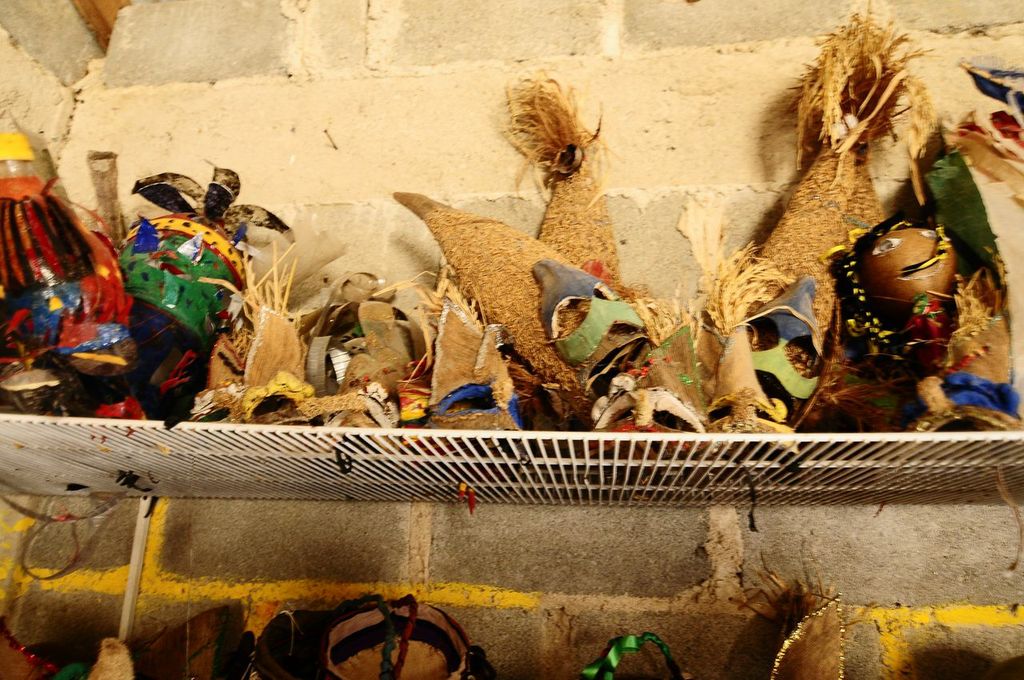
In a moment when media and other interlocutors in the United States tend to represent the Dominican Republic as a site where anti-black racism predominates in an exceptional manner, the retreat experiences and the aftermath, allow us to acknowledge how Dominicans have historically asserted their black ancestry, articulated solidarity efforts with other Antilleans and their Haitian neighbors, and that histories of anti-black racism pertain to all of us throughout the continent.
On September 23, 2013, the Dominican Constitutional Tribunal announced a decision to uphold the application of Resolution 12. Through the application of Resolution 12, passed in 2007, Dominicans of Haitian descent found their birth certificates and legal documents rendered invalid by the Junta Central Electoral. Resolution 12 suspends any identification documents that appear to be “irregular”; nationality is not mentioned as one of those irregularities. However, as various popular education and documentation efforts by Centro Bono state, in praxis, officials of the Junta Central Electoral cite parents’ nationality, a non-“Dominican” last name, dark skin, or anything that signals potential Haitian ancestry to suspend or destroy many Dominicans’ identification documents. The September 23rd decision essentially primes the ground for stripping hundreds of thousands of Dominicans – most explicitly those of Haitiandescent – of their citizenship. This, despite the massive efforts by groups on the ground: we must not forget that every 12th of the month over the past two years, Dominicans, Dominicans of Haitian descent, and Haitians have demonstrated in front of the Junta Central Electoral to demand the rights of Dominicans of Haitian descent.
The group reconoci.do and their allies at Centro Bono, MUDHA, and many other organizations in the Dominican Republic have been fighting the manner in which the Junta Central Electoral has taken away legal documentation from Dominicans suspected of Haitian ancestry. Moreover, in June 2013, representatives of the Dominican labor sector, Catholic and Christian institutions, and corporations, along with feminists, womens, peasants, international aid, and many other organizations, signed the “Compromiso Político y Social para un Nuevo Modelo de Gestión de las Migraciones de República Dominicana”(Social and Political Agreement for a New Model for Migration Policies in the Dominican Republic), seeking the implementation of already existing laws meant to regularize migration-related policies. In other words, on the ground, a variety of solidarity efforts between Dominican, Haitian, Dominican-Haitian communities are in place aimed at working against anti-immigrant discourses.
As we had experienced throughout our Retreat activities, such efforts are built in the fabric of organizations like La Colectiva Mujer y Salud, Kalalu and CONAMUCA in their advocacy for rural communities, women, and children in the Dominican Republic. For some of us, these efforts in the Dominican Republic also spoke to our concerns about the experiences of minority and migrant populations in the United States. This volume seeks to intervene in these contemporary debates by focusing more broadly on the difficult and explicit tension points within black feminist praxis – in a transnational context – and hopes to participate in a longstanding history of dialogues, collaborations, and exchanges between scholars, activists, and artists based in the U.S., the Dominican Republic, and Haiti.
Inspired by the generative work of black feminists, the Transnational Black Feminist Retreat brought artists, activists and scholars together for a week in the Dominican Republic. The purpose of the retreat was to ask the question: what does it mean to conceptualize and enact a transnational black feminist praxis? We hoped that the retreat would serve to dismantle simplistic representations of Dominican and Haitian history, and of racial politics in Dominican communities that ignore the island’s legacy of transnational anti-racist, feminist, labor, land, and de-colonial struggles. As part of the retreat, we visited with local organizations and with local groups of black women and black feminist activists, artists and scholars to hold conversations about this question.
All of us who came together are artists, activists and scholars whose work in one way, shape or form directly engages what it means to be black, to be a woman, to be queer – and often disenfranchised, poor, marginalized, and under attack – in the wake of colonialism, slavery and U.S. imperialism..
There, on the island, surrounded by dust and water, we walked with kids and cameras. With how we teach each other to capture and communicate. With spirit and the possibilities for joy and pain. With not often having answers that we can communicate in words. With looking to the ancestors for guidance. With the dances of the young people. With some serious problems with the imbalance in access to resources, including mobility. With how much of what it means to be black in the Diaspora is simply rubbing shoulders with the ineffable. And the images resound.
Over the course of a week, we met with powerful women from the rural women’s movement (CONAMUCA), from the movement for the rights of Dominicans of Haitian descent (MUDHA, Reconoci.dos), from the Dominican feminist movement (La Colectiva Mujer y Salud) and from the Afro-Dominican arts movement (Kalalú), and from rural and batey communities in the province of San Cristóbal and Santo Domingo. We worked with local anthropologist and historian Fatima Portorreal, whose unique political scholarship breathed life into the ruins before us.
This issue of Aster(ix) invites you into the gathering of our memories, our critical questions, our shareable insights and our ongoing longing to enact/describe/share something on which we are still chewing: transnational Black Feminist praxis. In this introduction, the co-facilitator Irmary Reyes-Santos and four of the participants – Alexis Pauline Gumbs (Lex), Carlos U. Decena, Matt Richardson and Dana Asbury – share pieces of their insights about the incredible promise and the unsettling limitations of our time together. They reflect on the questions of how we care for ourselves and each other within and beyond boundaries that emerged at every step in our journey. And they ask us to think about Transnational Black Feminist Praxis itself. What is it that we do together, from our specific locations and places, and what might it mean?
when ancestors speak
listening loves itself back
skin sings with meaning
-Lex
The Promise and Limitations of our Time Together
“The promise of this trip for me was in the dances of the young people. Those girls and boys expressed a Black self-love that was more elating and uplifting for my soul than I have felt in a long time. They were beautiful and amazing.” – Matt Richardson
In addition to being part of conversations with folks in the D.R., we had a day in which to reflect, to process and develop work from our experiences. The idea with this time of reflection was to assess the current dynamics of the playing field while also fostering intentional and deep conversation about black feminist praxis in and between the Global South and the Global North.
While there are many black feminists located throughout the Caribbean, there was particular emphasis on holding this conversation between Dominican, Dominican-Haitian, Haitian and U.S.-based artists, activists and scholars working within the framework of black feminist theories and praxis, because of the historical relationships between the three countries, and the potential implications for this moment. New research by scholars such as Ginetta Candelario and April Mayes points to the historical intersections of work between Dominican, Haitian and African-American women at the beginning of the 20th century around issues such as education, suffrage and women’s cultural leadership. This Retreat gives us an opportunity to foster a 21st century dialogue that builds on this history in an intentional and collective way.
The retreat also aimed to provide a ground in which to unpack some of the common and erroneous misperceptions about blackness and Dominican-ness that float in both popular and scholarly forums. In so doing, the conversations taking place during this retreat aimed to add nuanced and layered understandings of blackness and the intersections of race, gender, sexuality, class, nationhood and place in the African Diaspora, in particular as it informs black feminist theories and praxis.
Carlos speaks on his experience
Carlos: As a Dominican man living abroad, the retreat challenged me to root and route the relevance of black feminism for me in my homeland, and the results of this were simply life-altering. For many years and despite focusing most of my professional and creative work on themes Dominican, I really did not understand how to get out of outmoded ways of thinking about a lot of the ills that plague my people everywhere. Part of what this retreat staged for me was a very intentional encounter with black feminism as a praxis in my work and in my politics. Situating that in the Dominican Republic renewed my hope, as I was witness to the work of other activists, scholars, and artists on questions of blackness and decolonization in the Dominican Republic. I sense that blackness has been and continues to be an important route to decolonize my own mind as a Dominican creative thinker and writer.
Carlos and Matt speak to the limitations of both the experience and the framework in which we were working
Carlos: My main sense of the limitations of the experience have to do with the economy of travel and exchange in which it is inserted. There are some serious problems with the imbalance in access to resources, including mobility. And I fear that no follow up or commitment to collaborate that yields results could result in this being a nice experience in afro-diasporic travel. Again, that’s built into the experience of these exchanges, so my challenge remains figuring out ways to give back.
Matt: I feel like the limitation is in what I can give back to them. At MUDHA some of us talked to an organizer about the condition of LGBT people in the Bateys. Her question was, what could we, as visitors with some resources, do to sustain and support their efforts. All of my suggestions were inadequate at best. Our conversation still haunts me.
Our Capacity for Care
underground loving
i am because we all breathe
dark practice enough
-Lex
We stayed in dorms at CEFCAMATI – the Centro de Capacitación Mama Tingó, run and administered by CONAMUCA (one of the national rural women’s organization). One question that Alexis brought up – in ways that were profound and necessary – was:
“In the face of all we are called to hold (genocide, slavery, the targeting and punishment of black feminist activists, artists and thinkers around the world) how do we take care of ourselves and each other? How do we renew ourselves and stay tapped into sources of power larger than our analysis, our skill sets and even our anger? When I think about “capacity building” I think about increasing what we can hold. But how do we move all of the dynamic energy that we face, in the face of oppression, in the face even of the way we fail each other, through. For me capacity building is limited because we are not meant to simply hold all of this. As transformers we are meant to move it through. For me, daily poems move it though, dance moves it through, meditation moves it through and honoring black feminist ancestors gives me access to an unstoppable resource for transformation and love.
Carlos: One key insight that emerged from our interactions with folks in the DR was that the retreat itself was a very privileged space of healing for us, and that most of them (and most of us, in our regular lives) do not have access to healing spaces. Cultivating these spaces of healing will do a lot for us and for one another. The question remains how to do that, but I believe working on building on what the retreat accomplished would be a good way to move in that direction.
From Dana: One of the most significant undercurrents of the retreat was being recognized and recognizing others, having the conditions to be vulnerable, and to take care of ourselves – revealing what we could…
What does it mean to enact a Transnational Black Feminist Praxis?
This retreat could not possibly allow us to fully answer this question. But, conceptualizing the question as a starting point for a way of life in which our consciousness is grounded in experiences of exchange, love, respect, listening and speaking truth to power, allows us to submerge and emerge from the flow of Transnational Black Feminist Praxis – in many different kinds of ways.
For many of the Dominican, Dominican Haitian and Haitian women we were in circle with, the simple act of being present to each others’ experiences, listening to each others’ stories, witnessing each others’ struggles, and sharing of each others’ wisdom and knowledge was the most significant aspect of our encounters. Trying to confront the internal feelings of impotence among those of us from the Global North, the very basis under which we come together was challenged.
Juana of CONAMUCA said, “People always come from outside and want to talk about providing material resources. We can always use the help of people to work in our communities. But, it’s also important to share the human experience. To ‘compartir’.”
Jenny of MUDHA said, “A lot of people come and they want to help, and they come and we open our doors for them to help, but when they leave, they take their work with them, and we are left with fewer resources than when they arrive.”
And Marily of Kalalú stated, “Money is always appreciated, but do you have any videos or music on African dance? Or, could any of you provide a bibliography of African Diasporic art? The children here could really benefit from seeing these kinds of things.”
In other words, time and time again, the grounds of “blackness” and “feminism” were shifted when confronted with the material differences in which we live, work, love and breathe.
Irmary, a co-facilitator, speaks about “compartir” as a praxis point that we saw actualized in the context of the retreat. Compartir in this sense is one of the potential promises of this work. She says:
Oftentimes when activists, artists, or scholars from the North at the retreat asked activist organizations what kind of collaboration or contribution they would appreciate, their answer was that to compartir one’s struggles at home, ways of organizing, accomplishments, and challenges would be enough. Compartir is a model for exchange across ethnic, class, gender, and sexual differences, that entails learning from one another, sharing resources and experiences, comforting each other, and questioning each other, our privilege, social location, common sense. The notion of compartir acknowledges that social justice organizing requires fostering a sense of kinship amongst people that sustains them through political setbacks and disagreements; it also understands social actors as human beings with not only have political needs, but also affective ones. I am inspired by all those moments when us, afro-descendants, attempt to be in conversation with one another, whether it is intimate and easy, or tense, painful, awkward.
home is making it
taking total tough apart
be transformation
-Lex
Dana: The process allowed me to ask the questions: What am I doing? Who and what am I doing it for and toward? And how are We doing it such that the form works toward the goals (the doing and the for)? I found myself often not having answers that I can communicate in words. So it was a careful act of Balancing – not letting the questions or incompleteness of answers shut down the work.
Carlos: To “enact a transnational Black feminist praxis” involves the mindful activation of the nexus between theory and practice, and this retreat did a lot to help us move our bodies through the moments of individual and collective insight we experienced together. There was a dogged emphasis on the corporeal dimension of the exchanges and reflections we underwent, and accessing our bodies helped those of us used to intellectualizing everything take in our lessons differently. Looking back on that life-altering week, I see that one key insight is that mobilizing and instrumentalizing our own embodiments vis-à-vis history, spirit and the possibilities for joy and pain in and with others puts us close to something closer to wisdom than to knowledge, in the sense of how fortuitous insight was in light of how much of what it means to be black in the diaspora is simply rubbing shoulders with the ineffable.
This retreat also made clearer to me how important it is to step out of the institutional and professional straitjackets that do not allow us to embrace and find a full sense of self and healing in struggle. As our colleagues in the DR pointed out throughout the week, the needs are urgent and constant. There is a work of transformation and self-healing that must happen if our involvement in these efforts to improve the lives of others, are going to be sustainable.
It seems to me that a viable transnational black feminist praxis implicates our bodies as instruments that we need to heal—not with the pretension of transcendence, mind you, but with the simple goal of aiming to heal and in doing so, experience transformation at some level. But there is also the issue of listening—truly listening—to ways of apprehending oppression in the diaspora that can be linked to experiences related to the middle passage but that may not be immediately intelligible to us, especially for those of us who travel within US-based institutional settings.
Matt: The week made me realize that there can be no praxis without spirit. I was raised (politically) to think about praxis as having nothing to do with the spiritual and now, when I consider the implications of “theory and practice,” they seem to be twin parts of spiritual preparation and connection. On the flight to the island, I started to weep, inexplicably. At least, I was not able to explain it by any material means. Before traveling, I had prepared myself with academic historical research, with Dominican literature, but not by looking to the ancestors for guidance, or by centering myself in ancient African wisdom. When I stood at the sugar plantation and then again at MUDHA and in the bateyes, then I realized how much I needed to bring another set of “theories” and practices to my feminist work.








